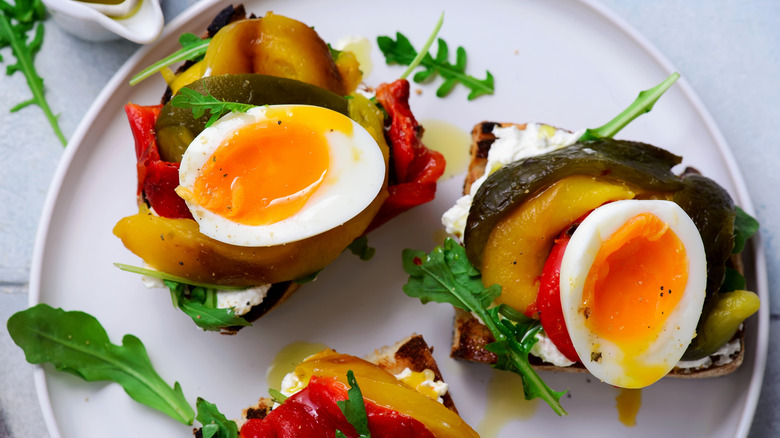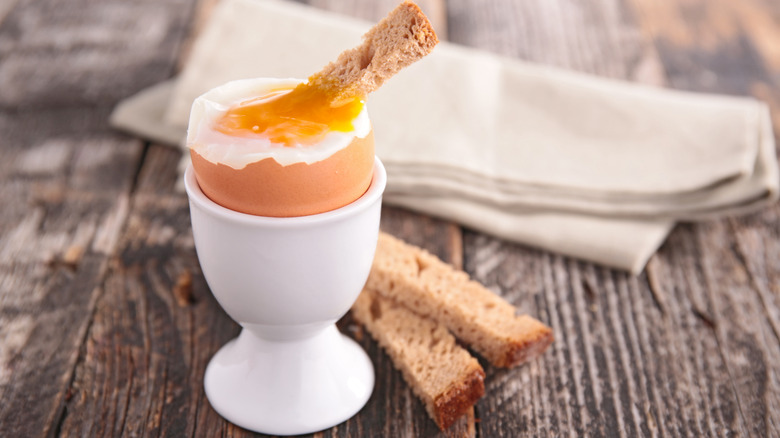The Simple Mistake You're Making That's Ruining Your Soft-Boiled Eggs
Disclaimer: To ensure food safety, eggs should always be cooked to 160 degrees Fahrenheit.
Did you know that there are allegedly 100 different ways to cook an egg? Yes, 100, all of which are said to be uniquely represented by the folds on a traditional chef's hat. That number is a bit intimidating, so if you're new to egg cookery, you may want to start by mastering one of the simpler techniques, such as the soft-boiled egg.
When prepared properly, the egg whites of a soft-boiled egg will be fully set, but the yolk will remain soft, with its consistency ranging from runny to jammy. However, according to Nelson Serrano-Bahri, chef and director of innovation at the American Egg Board, all of that great texture can be lost if you don't watch the clock while prepping soft-boiled eggs. "Overcooking your eggs and not timing your cooking process properly is one of the biggest mistakes you can make when soft-boiling an egg," he said in an exclusive interview with Mashed.
The process of making soft-boiled eggs is fairly simple, but it requires finesse — exceeding the proper cooking time by even one minute can result in overcooked eggs, so using a timer is your best bet to ensure perfection. Serrano-Bahri explained, "Start by placing the eggs in cold water, then bring them to a rolling boil and immediately reduce the heat to a gentle simmer and start the timer." As for how long you should set the timer, that depends on your personal yolk preference.
Runny and jammy soft-boiled eggs require different cooking times
When speaking with Mashed, Nelson Serrano-Bahri suggested cooking your eggs for four to six minutes if you want them soft-boiled. While that doesn't seem like a wide range of time, those two extra minutes can make a big difference in your finished eggs' consistency.
If you're a fan of runnier eggs, you'll want to stick to the lower end of Serrano-Bahri's time frame and set your timer for four minutes, as this will leave the yolks runny and the whites slightly undercooked. This consistency is perfect for dippy eggs, which you can serve in an egg cup (this will prevent the egg from rolling around on your plate) alongside a few strips of buttered toast for, you guessed it, dipping. In contrast, if you prefer your eggs a little more cooked, you'll want to boil them for the full six minutes. These egg whites will be fully set while the centers will have more of a jammy consistency. From there, they can be eaten as they are, or you can add them to dishes like ramen (or our recipe for chicken arroz caldo with jammy eggs).
Regardless of which side of the yolk-consistency spectrum you fall on, make sure you have an ice bath ready when making soft-boiled eggs, and transfer the eggs to it immediately once the timer goes off. This will abruptly halt the eggs' cooking process, further ensuring that your perfectly timed soft-boiled eggs don't cross over into hard-boiled territory.

